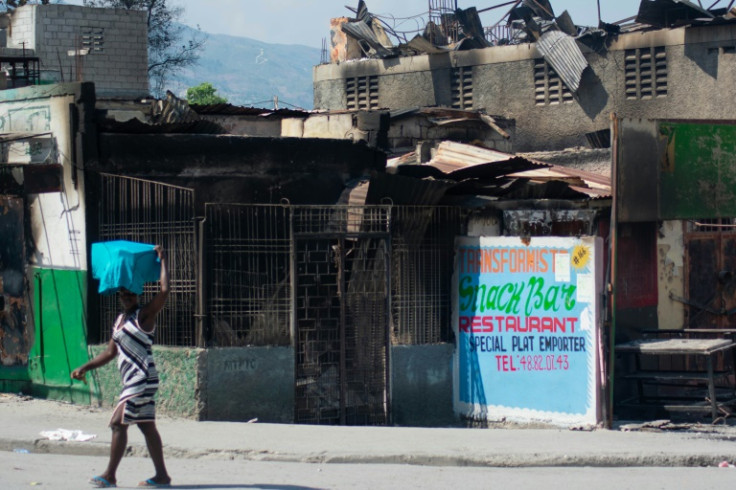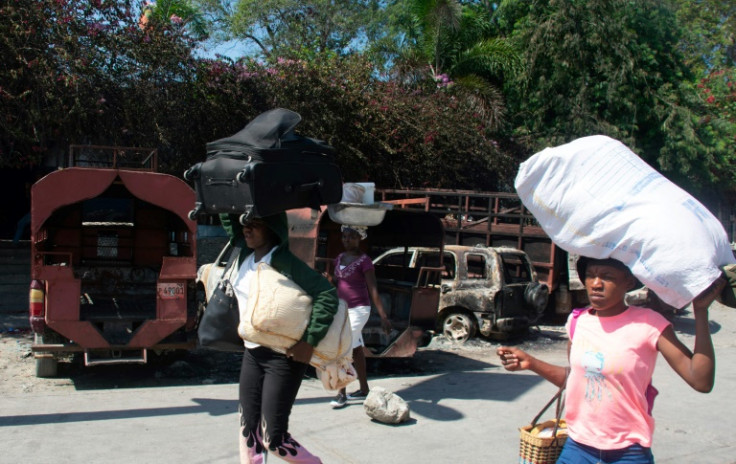
After years of chaos in Haiti, ultraviolent gangs have turned into their own power centers, posing a massive challenge as the international community pushes a political solution for the country's crisis.
Caribbean leaders and key outside powers agreed at emergency talks in Jamaica on Monday to a plan that includes the resignation of Prime Minister Ariel Henry, and, on the security side, US Secretary of State Antony Blinken offered major new US funding for an international intervention.
Henry will be replaced by a new transitional council with seven voting members that aims to set the stage for elections, the first since 2016 in the Western Hemisphere's poorest country, and the arrival of the Kenyan-led force.
The council will give space to representatives of major political parties, civil society and the church but drew the line at anyone under UN sanctions or charged or convicted of crimes.
The prohibition would rule out roles for two of the most feared gang leaders -- Jimmy Cherizier, a former policeman nicknamed "Barbecue" whose 2022 blockade of Haiti's fuel terminal plunged the nation deeper into collapse, and Guy Philippe, who pleaded guilty in a Miami court in 2017 to accepting up to $3.5 million in bribes from drug traffickers when he held a senior police position.
Barbecue in a video vowed not to recognize the council's authority, accusing the international community of favoring a small coterie of politicians.
"Our goal is to topple the system. I call on the Haitian people to take to the streets and voice their frustrations and exercise legitimate violence against those who have made us suffer for so many years," Barbecue said.
US State Department spokesman Matthew Miller said it was no surprise gang leaders would oppose the deal as they "thrive on the chaos" that the international community is seeking to control.
Public order and basic services have broken down in Haiti after years of intertwining political, security and health crises which have been aggravated further by natural disasters.
Haiti in recent weeks has descended into virtual anarchy, with bodies strewn on the streets, armed bandits ransacking basic infrastructure and fears rising of famine. Gangs control around 80 percent of the capital Port-au-Prince, according to the United Nations.
Ivan Briscoe, program director for Latin America and the Caribbean at the International Crisis Group, said that gangs have "penetrated deep into communities" in the past few years of crisis, including by recruiting youths.
"They've preyed on the desperation of young people," he said.
"They won't go away, and they have taken on an increasingly belligerent political rhetoric," he said.
"Will they accept the new equation of power? Or will they try to sabotage it in any way? We simply don't know at the moment. Much depends on a stronger official law enforcement capacity with support from abroad."
The United States and Canada have declined to commit troops to another high-risk intervention in Haiti but have together committed more than $350 million to the international mission.
Kenya has agreed to lead the force. It put its plan on hold after Henry announced his resignation, but US officials voiced confidence that Kenya will step up once the transition moves forward.
Eddy Acevedo, chief of staff and senior advisor at the Wilson Center in Washington, said it was not out of the question for Barbecue or Guy Philippe to seize the presidential palace.
"Haiti is at the brink of falling with our worst nightmare coming true," he said.
The fledgling national police force could simply give up if it feels powerless, he said.
"This situation can unfortunately lead to forcing political leaders to negotiate with gangs," he said.
Pablo Calderon Martinez, an associate professor of international relations at Northeastern University London, said that Haiti's crisis had been allowed to fester too long, strengthening the gangs.
"Once criminal organizations have the capacity to really start challenging government for control and almost legitimacy, then it is very hard for governments to rustle back control without the country descending into further violence," he said.









